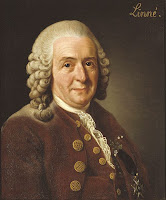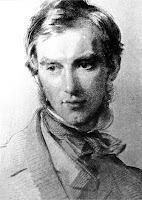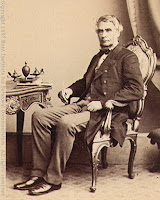
Carl Linnaeus
Aka Carl Von Linne or Carolus Linnaeus: Swedish botanist, physician, and zoologist, who laid the foundations for the modern scheme of binomial nomenclature. He is known as the father of modern taxonomy, and is also considered one of the fathers of modern ecology.
Born May 23 1707, Sweden.
Studied at the University of Lund in 1727, studying medicine, one year later transferred to the University of Uppsala, the most prestigious university in Sweden, where he studied plants more than medicine; however botany was seen as part of the medical curriculum.
In 1931 he mounted a botanical and ethnographic expedition to Lapland and in 1934 another in Sweden.
One year later he finished his medical degree at the University of Harderwijk in the Netherlands, and then enrolls in the University of Leiden for further studies. Whilst there he publishes his first edition of his Classification of living things “Systema Naturae”.
1738 returns to Sweden to practice medicine (the treatment of syphilis) and lectured in Stockholm.
In 1741 he is awarded a professorship at Uppsala. Where he stored the university’s botanical garden arranging the plants to his system of classifications. Also he made three more expeditions to various parts of Sweden, inspiring a generation of students. He was instrumental in arranging for his students to be sent out on trade and exploration voyages to all parts of the world. Perhaps most famous of his students was Daniel Solander who was the naturalist on captain James Cook’s first around the world voyage, and brought back the first plant collection from Australia and the south pacific.
1753 he published “species plantarum” naming for grouping of plants.
1758 he brought manor estate Hammarby, outside Uppsala, where he built a small museum for his extensive personal collection.
He was granted nobility and become Carl Von Linne in 1761.
Starting from 1774 he suffered years of depression and pessimism, resulting in a series of strokes,till 1778 when he dies.
His son also named Carl, succeeded his professorship at Uppsala, but never was note worthy as a botanist, he died five years later with no heir, his mother and sister sold the elder Linnaeus library, manuscripts and natural history collections to the English natural historian Sir James Edward Smith, who founded the Linnaean Society of London to take care of them.
 Garden before
Garden before



